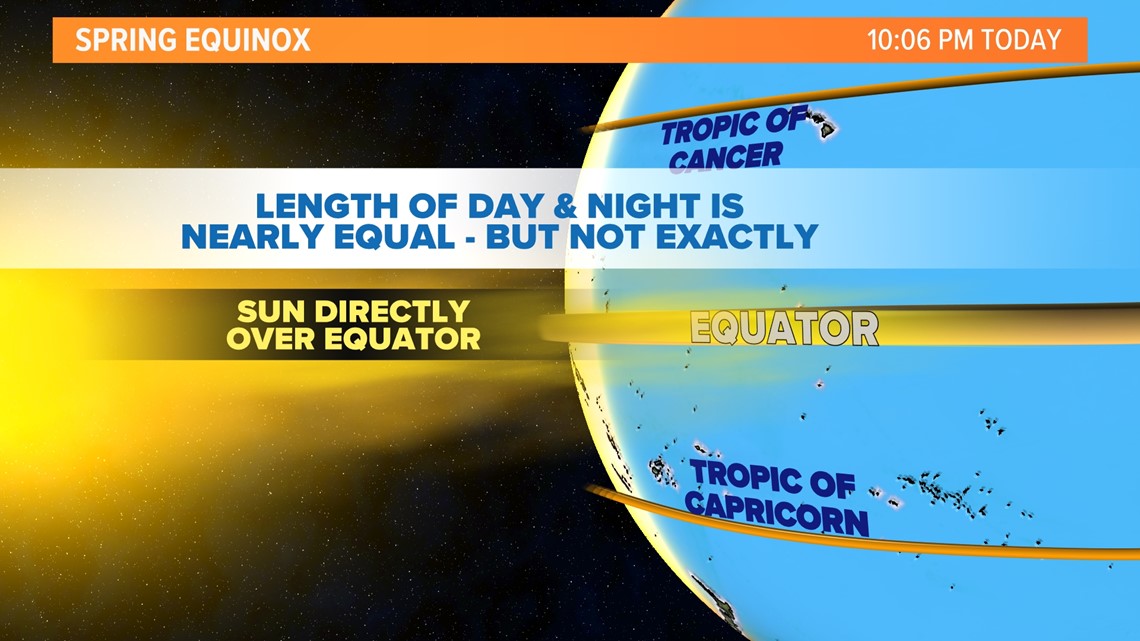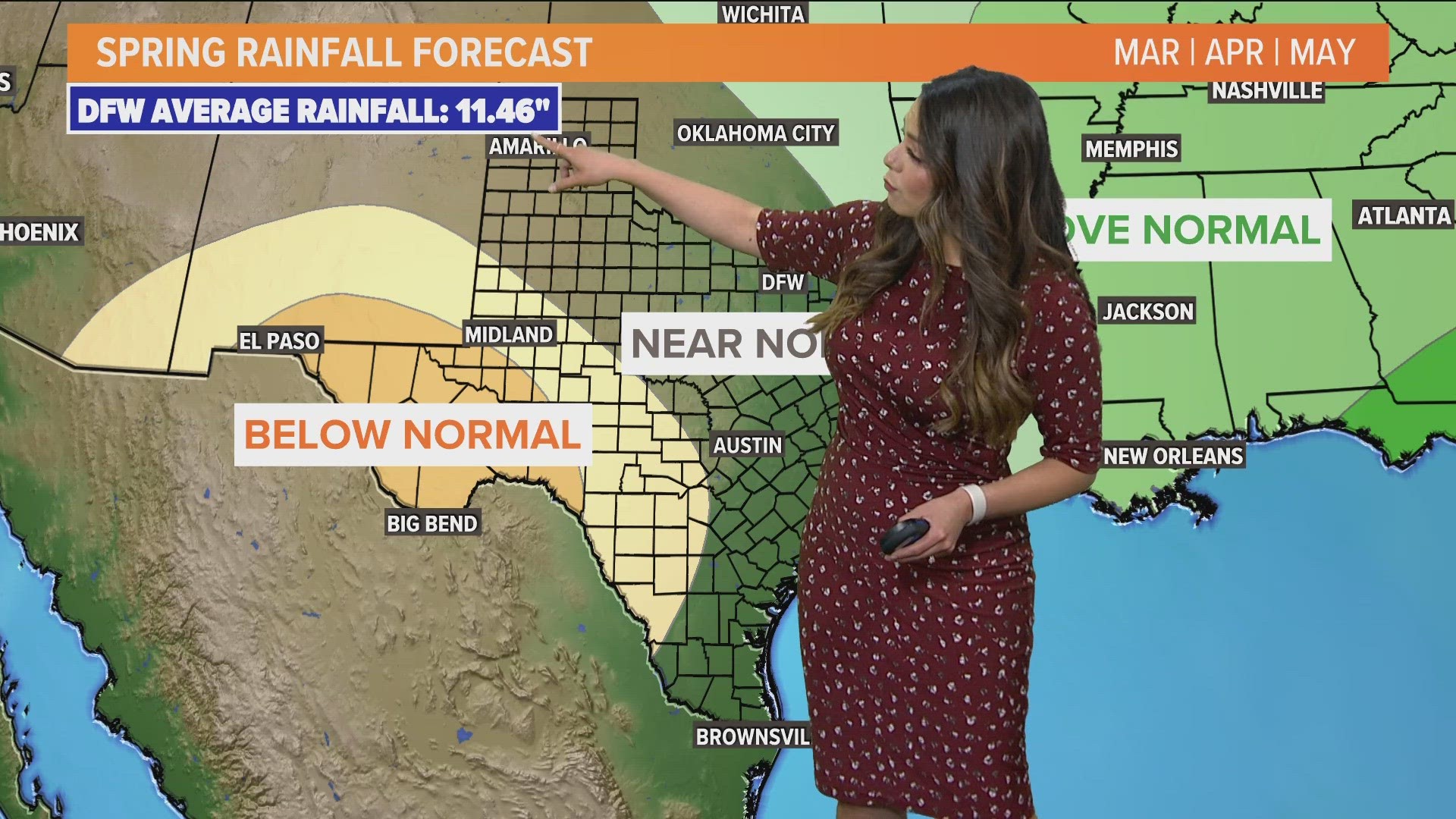DALLAS — Spring has sprung!
Sure, Meteorological Spring has already arrived back on March 1 (it lasts through May, for what it's worth), but the beginning of Astronomical Spring (or True Spring, as some call it) is marked by the Vernal Equinox, which takes place today.
Equinox is a Latin word that rough translates to "equal nights" -- fitting, since the Vernal Equinox marks when daytime and nighttime are nearly equal.
Today, it gets pretty darn close here in North Texas: Sunrise was at 7:33 a.m., and sunset will happen at 7:39 p.m.
The reason the hours of daylight and nighttime are not exactly equal has to do with how we measure sunrise and sunset. We measure sunrise/sunset by when the first sliver of the sun arrives on the horizon and when the last sliver disappears, which causes the hours of daylight and nighttime to not be exactly equal on the equinox. If we measured sunrise and sunset by when the center point of the sun crossed the horizon, then the hours of daylight and nighttime would be equal.
The exact time of the vernal equinox changes every year, but falls between March 19th and March 21st every year. It's determined by tracking when the sun crosses the equator from the Southern Hemisphere to the Northern Hemisphere. Today, in Dallas' Central Time Zone, that crossover will take place precisely at 10:06 p.m.


That means that, in the coming weeks and months, the Northern Hemisphere will continue to receive more and more sunlight every day until the Summer Solstice's arrival in June.
In other words: Longer days and shorter nights are on the menu!
Today in Texas, we'll see about 12 hours of daylight. By June 19, we'll get close to 14 hours and 20 minutes.
Cue the blooming flowers and greening trees!

